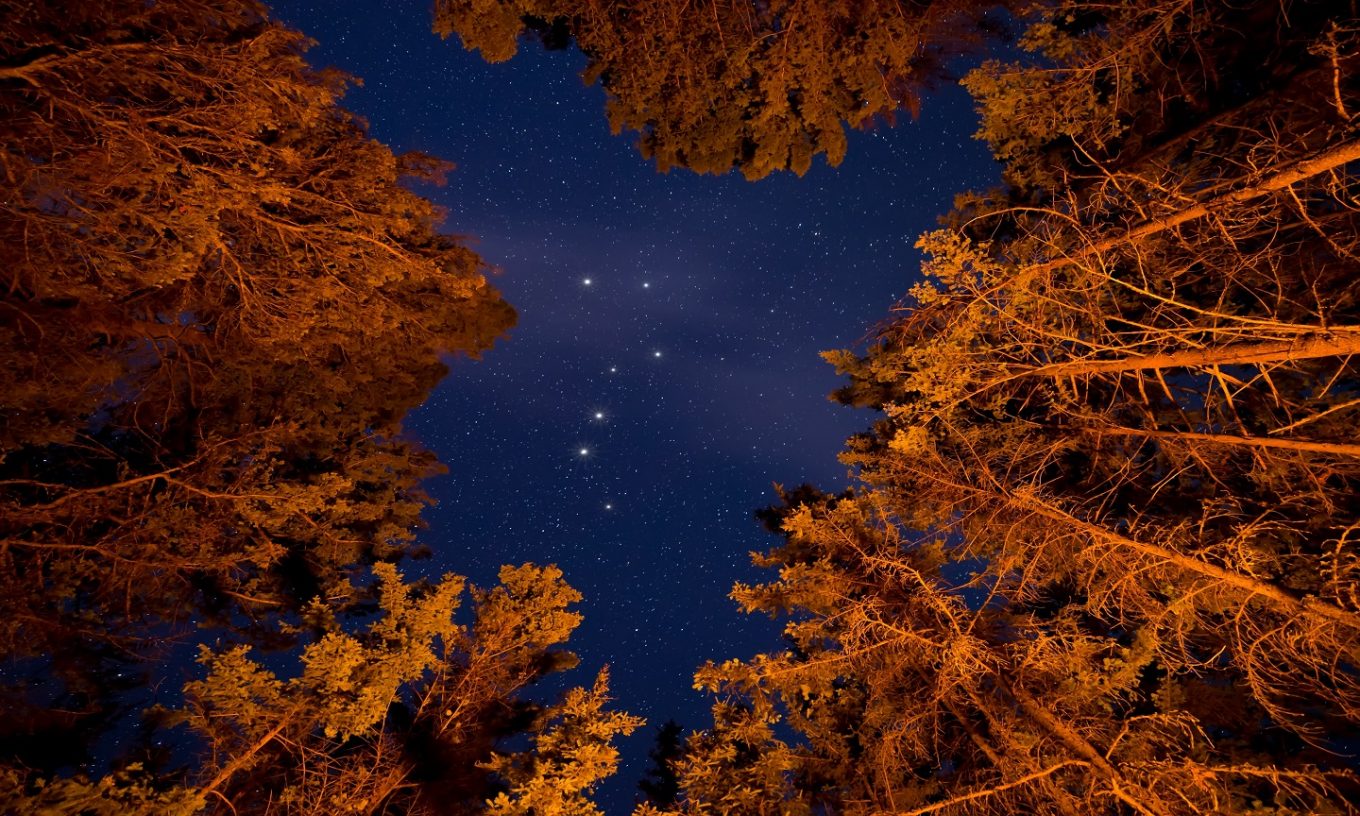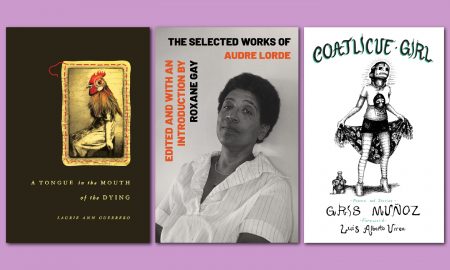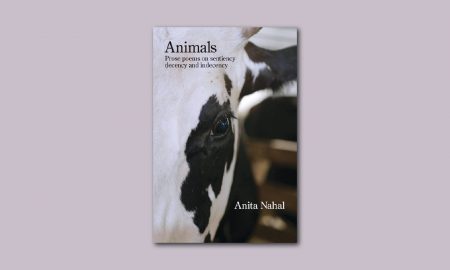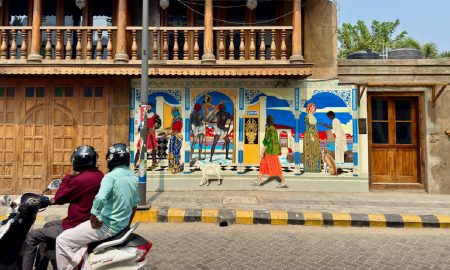Are you Jewish or Christian?
I am in third grade when the school bus becomes the battleground for a debate on religion. I shrug. I’m neither, I reply to my nameless bus stop rival. We could be busy playing Pokémon arguing over which type would best defeat the other, or who is the cutest. Instead today he wants to know about my family. Do we go to church? A synagogue? Do I pray?
His face contorts with the incredulity only seven-year-olds can muster. You can’t be neither. You have to be one or the other. He peers closely at me as if suddenly I’ve turned into an alien from Pluto, which is my favorite planet, but I am not an alien, and I start to find his gaze infuriating.
I refuse to break eye contact, knowing that in the world of vinyl seats and windows that only open one-third of the way, losing eye contact means defeat. I gather my things without looking away from him, trying so hard not to blink that my eyes begin to water.
Well, I’m neither, I say again.
The bus begins to slow down with a soft rumble. It seems I will have the last word in this theological debate, but as I walk down the aisle, the kid stands up and yells after me.
You can’t be neither!
At my stop, Mom is waiting. Mom still walks me home from the bus stop, about ten minutes up the road from us. She checks my backpack before the bus pulls away to ensure I haven’t left anything behind. Last week I left my Scooby-Doo lunch box at school, and it stayed there for a week until it finally made it back into my backpack, rotten milk included. I tap my foot anxiously and look away from the bus. She’s talking to Ed, the bus driver, while the young inquisitor stares at me out the booger-ridden bus window.
On the way back home, I ask Mom the big question. Am I going to hell?
No, you’re not. You just have to keep being good, and when you are older, you can decide to be a Catholic. Then you can walk into a lake or something like Jesus, she tells me without looking down or skipping a step. Why walk into a lake? I’m not sure. But we live close enough to one if I need to. To think of it, I walk into the lake all the time. Am I already baptized?
I ask my father, later sitting in front of the T.V. growling at W Bush’s first election campaign with a beer in one hand and a smoke in the other. He asserts that Catholicism is evil and that most priests “are little boy diddlers.” The church is corrupt. When new Church scandals began to pop up on CNN, he points and shakes his finger. See? Told you, he says.
I start thinking about the Hail Marys my mom chants when we pass roadkill on the way to school. I think of the prayers she whispers when we pass the graveyard where her father and my aunt are buried. She doesn’t teach us prayers outright but she says grace when we have dinner at family gatherings. And the phrase there before the grace of God go I spill from out of her mouth when we see the maimed, wheelchair-bound, or destitute.
Mom’s family is Roman Catholic. Everybody I know has had communion or confirmations. And it stinks because first of all, I don’t get any parties or presents, and second, when I have to go to church with them, they won’t even let me get up to eat the “cracker” because I haven’t been baptized. I’ve also heard an awful rumor that if you’re not baptized, you’re going to hell.
And one Sunday, I’m at my aunt Cindy’s house, and I end up going to church as part of the condition of a two-night sleepover with my cousins. At one point, the father/priest/whatever weird guy who Dad says might be a diddler says something I can’t hear, and everyone gets up to go to the podium. I stand to go up too, and my aunt puts a hand on my shoulder and tilts her head down to look at me. You can’t go up, she says, and I sit back down red-faced and uncomfortable.
My cousin, and best friend, Brittany, tries to make me feel better by lamenting about how dull and stupid Sunday School is, but it doesn’t make me feel any less left out.
Dad’s family is protestant, or so he says.
Did grandma make you go to church? I continue to press the issue of religion to him.
He laughs. She tried.
He always has an answer and never sugarcoats it, so we forgive him when we begin to realize that his answers are fabricated out of his vast imagination.
***
During our lessons in agnosticism, Dad teaches us how to fish. It takes us less than five minutes to gather our equipment and head to the beach across the street. Arielle and I carry the chairs. Dad carries the rods and a twelve-pack of beer.
Rooted in lakeside mud and sand, my sister and I, and often one or two of my cousins, pull freshwater mussels from the bank and throw them against the concrete slabs leading to the dock to reveal their slimy organs. We prefer gathering the mussels to hooking worms. Worms writhe and twist, violently resisting the hooks on our lines. The mussels are wet, and we imagine that this is the consistency of the human brain or close enough to it to be a major gross-out.
Dad sits at the edge of his plastic folding chair, holding our rods, and he helps each of us hook our bait and cast out. Occasionally, he taunts us with the worms we hate so much, throwing them at us. We scatter and run to hide behind nearby benches and into the water in our bathing suits.
After experiencing a few more Sunday mornings at church, I want Dad to explain how it all works. I want to know more about God and if it means I’m bad if I don’t go to church too.
Do you think God is real? I ask. I figured out Santa Claus this past Christmas when I was instructed to leave a few beers with the cookies. Was God also just a story? Often Dad doesn’t think I’m listening, but I am. And I have heard him say things to people about God that I know my school bus nemesis would start an inquisition over.
He shrugs, leans back in his folding chair, and looks up into the night sky. It isn’t often that he has nothing to say, but now he is quiet. Unable or unwilling to give me a simple answer.
We can see the Big Dipper clearly, and even though it isn’t quite full dark, I can see the outline of the milky way wavering across the sky, shimmering bands of light and gas, dancing while I wait for him to give the big reveal.
There is something out there. We just don’t know what it is, Dad tells us. It could be God. I’m not sure. But—I do think there’s something out there, though.
So, what happens when you die? Am I going to go to hell? I’m not baptized. I pause. I can’t eat the cracker, I add.
There might be heaven, but you might be asleep. You could be reborn, or you could be awake in your head. He taps his head for emphasis, then chuckles, And Baby, if there is a heaven or hell, if you are a good person and do the right thing when you can, you’ll go to heaven.
I think about it for a minute. It makes sense. I nod. Then another thought occurs to me.
Well, what happens if you get buried, and you’re still alive?
He leans in close, an evil smirk growing on his face. There used to be a bell that you could ring in your coffin, and everyone would help dig you up. Not anymore, though, he says. We catch sunfish, catfish, and eel from the lake. But everything we catch, we toss back. My father gingerly removes the hooks from the fish and sends them gently back into the water. We sit in companionable silence while the rest of the world and God fade away.
Photo by James Wheeler on Unsplash





